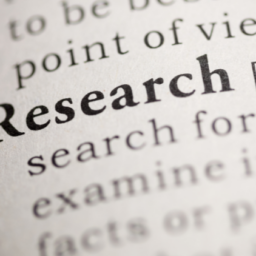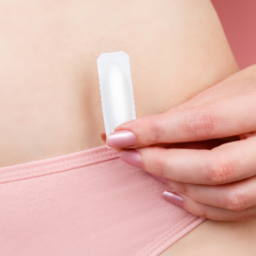
Why is a weed hangover bad?
You wake up and your face feels as though it’s blown up like a balloon. The morning sunlight is just a bit too bright. Your mouth feels like you haven’t had a drop of water in weeks, and there’s a thick fog clouding your mind.
Then you remember you may have taken one too many edibles last night. Maybe 5mg really was enough!
While we all know about alcohol hangovers, there is little research done on the residual effects of cannabis. That means, going to sleep high and waking up – well, still high.
Symptoms of weed hangover may include fatigue, lethargy, brain fog, dry eyes and mouth, headaches, and/or mild nausea.
It is important to take the following with a grain of salt as a common issue in the field of cannabis is that there is not enough vetted research to support a lot of anecdotal experiences. That said, these experiences inspire questions that we should investigate in more formal detail.
What research has been done on weed hangovers?
Some studies have shown that increasingly high cannabis doses can lead to more confusion and elated behaviors, as well as decreased cognition when it comes to working memory (Matheson, et. al., 2016). https://www.sciencedirect.com/science/article/abs/pii/S0091305719306276
Frequent and superfluous consumption of cannabis has been associated with fatigue and lower response to organization. In other words, when you overdose, you may experience a decrease in psychomotor function.
There’s a portion of the research that is mostly concerned with the persistence of these residual effects once significant levels of THC have left the body (Pope, 1995) https://www.sciencedirect.com/science/article/abs/pii/037687169501097I
They assert that a persistent decrease in cognitive function may be a medical concern to keep an eye on when people continue using cannabis.
But what actually causes a weed hangover?
Many people experience the hazy effects of overconsumption, but why does it happen? To be quite frank, there is insufficient evidence to nail down one certain cause.
Since THC potency varies by product and everyone is physiologically different, it is difficult to chalk up the root of weed hangovers to how you metabolize cannabis. Your weight, genetics, and rate of consumption are all variables that can differentiate your high (and post-high) from others.
Many studies note more accounts of hangovers with extracts and edibles which have extended acting times and are trickier to dose. On the other hand, smoking and tinctures, which allow cannabis to penetrate the blood-brain barrier more immediately, are less associated with those fatiguing effects.
Could it just be dehydration?
This is a common theory as the cannabinoid, THC, binds to submandibular glands which are responsible for producing saliva. Thus, some have reason to believe that the effects of the hangover are really aggravated by not having enough water in your system.
Though once again,
There isn’t enough research to make such a direct conclusion!
Suffice to say, however, making sure you drink a lot of water throughout a session (much like you would if you were drinking) is good practice!
Are weed hangovers a sign of cannabis withdrawal symptoms?
Certain students point to withdrawal symptoms as a result of people experiencing “hangover symptoms” and want to ameliorate them by consuming more cannabis. Though these are usually seen in people with cannabis use disorder.
This may not be the case for a one-off accident with a precarious brownie.
That said, it helps to be critical of papers that are quick to conclude cannabis dependence for behaviors that are poorly monitored and studies that are poorly designed. This drives much of the “lazy stoner” stigma many associates with cannabis today when hangovers are a common result of misinformed consumption practices, not simply cannabis abuse.
Much like the other theories laid out above, there is insufficient evidence for this.
So… what now?
It appears that we still have several mysteries on our hands. Since it is difficult to predict without extensive testing or personal experimentation, when a marijuana hangover can occur, there are a couple things that may help mitigate its risk:
- “Low and slow,” is a popular mantra, especially for infrequent cannabis users. Take small doses of your cannabis products and wait a sufficient amount of time to let them take effect. Optimal starting doses will vary by person, but many edible products on the market will suggest 1-5mgs.
- Drink lots of water! If your mouth is dry, listen to it! Staying hydrated is important for your body even when cannabis isn’t involved.
WEED HANGOVER CURES:
Tips for alleviating a hangover should follow good self-care practices.
- Have a balanced, nutritious meal
- Take a cold shower to re-energize yourself
- Again, drink lots of water
- Try CBD, or a non-psychoactive pain/anxiety reliever
- Exercise
TIPS TO AVOID A WEED HANGOVER:
There are many options to avoid negative effects of weed.
- Avoid smoking weed the night before an important activity. If you tend to experience marijuana hangovers, try to avoid using marijuana the night before something important or when you need to be particularly sharp.
- Take days off. Avoid using weed on a daily basis. Continuous weed use can build up your tolerance, which might eventually trigger withdrawal symptoms.
- Limit your use. You might be more likely to experience a weed hangover if you over consume. Decide on an appropriate quantity before you use cannabis
- Try low-THC marijuana. No one’s totally sure how THC affects cannabis hangover symptoms, but it’s worth trying low-THC strains to see if they help prevent morning-after symptoms.
- Don’t mix it with other substances. The morning-after effects of weed might be more intense if you tend to smoke weed while also drinking alcohol or using other drugs.
A heavy session or unwanted trips should not always result in such painstaking consequences. Becoming informed about your cannabis consumption habits and being a conscientious consumer will not only minimize the risk of negative experiences but also support a healthier relationship with the plant.
-Julianna Montano
Julianna Montano sought to find an industry that could foster growth towards her Pre-Law and Pre-Pharmacy goals. Navigating a niche intersection of two very different disciplines, she took on the role of President of Cannabis at USC, an undergraduate student organization focused on ushering a new generation of industry leaders and health promotion. In working with USC’s Trojan Cannabis Network, she discovered EndoCanna Health and Hello Again; her research in neurogenomics and women’s health has allowed her to explore different avenues for accessible and personal health care, which she believes is key to enhancing patient autonomy and understanding.







